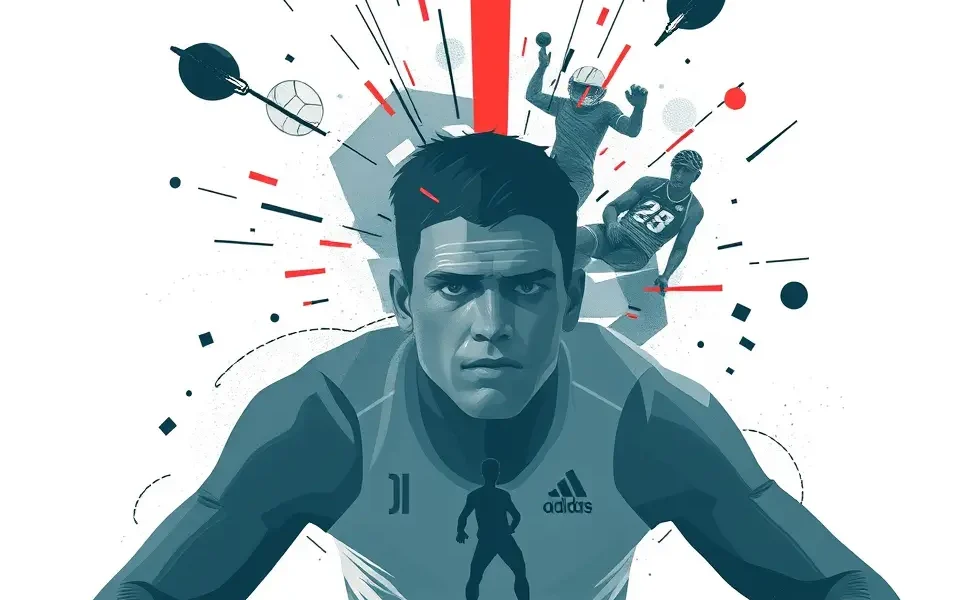Novak Djokovic, one of the most dominant figures in the history of tennis, has made a candid confession about the mental challenges he faces even after decades of competing at the highest level. Despite his unparalleled success, the 37-year-old Serbian star admits that “nerves and stress” are constant companions on the court. This revelation offers a fascinating glimpse into the mindset of a champion and highlights the importance of mental fortitude in professional sports.
The Enduring Presence of Nerves
In a recent interview, Djokovic opened up about his pre-match feelings, stating that he still experiences stress and nervousness before every match. “I feel the cramps in my stomach before every match. I’m stressed, I’m nervous, I’m excited,” he confessed, emphasizing that these feelings are a “good sign” because they indicate that he still cares deeply about the sport and his performance.
This admission might come as a surprise to some, considering Djokovic’s vast experience and numerous accolades. However, it underscores the universal nature of anxiety and pressure, even for the most accomplished athletes. It’s a reminder that mental strength is not about eliminating these feelings but rather about managing them effectively.
Managing Pressure Through Mental Training
Djokovic has spoken extensively about the mental training he employs to cope with the pressures of professional tennis. He acknowledges that it’s “almost impossible to eliminate that kind of pressure, anticipation, the nerves” but emphasizes that he has learned to “train myself… with the experience and with also the dedication that I had off the court to the mental preparation” to react better to those emotions.
This mental preparation includes various techniques, such as:
- Meditation: Djokovic has been practicing meditation for years as a way to “regroup, center myself, and understand the emotions I’m feeling.” He uses mindfulness and breathing techniques to stay present and avoid being overwhelmed by nerves.
- Visualization: He engages in visualization techniques, mentally rehearsing matches and imagining executing perfect shots. This helps him prime his mind for optimal performance.
- Positive Self-Talk: When feeling nervous or doubtful, Djokovic focuses on encouraging himself and maintaining a positive attitude. He recognizes that negative thoughts can creep in but strives to hold his composure and stay confident.
Learning from Setbacks
Djokovic believes that even his losses have been valuable learning experiences. He sees them not as failures but as “opportunities to improve” and “lessons to be learned.” He explains that “in those matches you lose, big matches, that’s where you learn the most. That’s where you’re facing the kind of wall mentally. You’re upset.”
These setbacks provide an opportunity to “address that and become stronger, more capable” and to “get to know yourself a little bit on deeper levels.” By analyzing his reactions to pressure and disappointment, Djokovic has gained a deeper understanding of his own character and how to overcome challenges.
Holistic Approach to Well-being
Djokovic’s approach to managing stress extends beyond mental training to encompass a holistic view of well-being. He follows a strict daily regime that includes:
- Diet: He adheres to a gluten and dairy-free diet and avoids sugar and caffeine.
- Conditioning: He is renowned for his immense dedication to his physical conditioning.
- Hydration: He uses hydration supplements to aid his sleep management.
He also uses an “energetic disc” that creates an electromagnetic field around it, claiming it helps with stomach issues and inflammation that arise from stress.
A Positive Impact on Tennis
Despite the nerves and stress, Djokovic remains passionate about tennis and believes that his continued presence on the professional circuit has a positive impact on the sport. “It’s a good sign because I still care about doing this, and I feel and I hope that my active career that keeps going is also positively affecting the overall tennis ecosystem,” he said.
He has also spoken about the importance of mental health, family, and personal growth. Djokovic’s openness about meditation has inspired athletes and fans alike to explore mindfulness as a tool for stress relief, focus, and inner peace. He believes that meditation is not just for elite athletes but for anyone looking to improve their lives.
The Road Ahead
As Djokovic approaches the later stages of his career, he is contemplating how and when he wants to end it. He has stated that he will continue playing as long as he can compete at the highest level, but if he starts to struggle for form, he will “probably call it a day.”
In the meantime, he remains focused on the present and committed to managing the nerves and stress that come with being a top athlete. His candidness about these challenges serves as an inspiration to others, demonstrating that even the greatest champions are not immune to pressure and that mental strength is a crucial component of success.








No Comment! Be the first one.